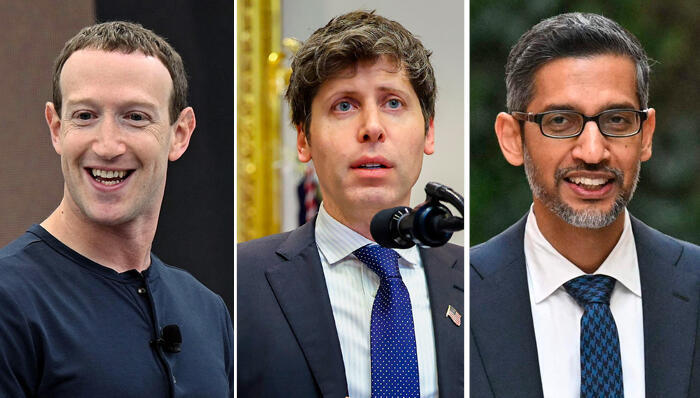Leading AI Companies Urge Trump to Dismantle Regulations

Shift in AI Industry Perspectives on Regulation
Initial Requests for Regulation
In May 2023, prominent leaders from major artificial intelligence (AI) companies, including OpenAI, Google’s DeepMind, and Anthropic, reached out to U.S. lawmakers with a call for increased regulation. They expressed serious concerns about the potential dangers of AI, stating, “Mitigating the risk of extinction by AI should be a top global priority.” OpenAI’s founder and CEO, Sam Altman, testified before Congress, stressing, “If this technology goes wrong, it can go quite wrong.” Altman emphasized the need for collaboration with the government to ensure future risks would be managed effectively.
Changing Stance from AI Giants
However, as of late 2023, the dynamics surrounding AI regulation have shifted. Following a change in the U.S. administration, these tech companies have altered their approach. A report from The New York Times highlighted this change, noting that AI leaders like Google, OpenAI, and Meta are now lobbying for reduced oversight. These companies are attempting to influence the government to prevent state-level regulations, advocate for laws that permit them to utilize copyrighted materials for AI training, and secure access to federal data for improving their AI models.
The Biden Administration’s Initial Efforts
While President Joe Biden’s administration initially collaborated closely with AI firms to develop regulations, signifying a more proactive stance toward AI governance, progress did occur. Under Biden, guidelines were established for external reviews of algorithms, labeling of AI-created content, and enhanced transparency regarding risk management. In October 2023, Biden signed an executive order aimed at safeguarding citizens’ privacy rights, thereby mandating that federal agencies ensure AI systems do not pose any danger to the public.
Reversal of Policies Under Trump
Nonetheless, this regulatory approach was swiftly reversed with the return of Donald Trump to the White House. Shortly after his inauguration, Trump rescinded Biden’s AI policies through an executive order that emphasized the need to eliminate what he deemed “barriers to American leadership” in the field. This directive included provisions for developing policies aimed at speeding up AI growth within a mere 180 days.
AI Companies’ Lobbying Efforts
In light of Trump’s policies, AI companies perceived a need to adapt their strategies. Many have actively submitted requests to shape new AI regulations, with OpenAI presenting a 15-page document advocating for the prevention of state-imposed AI regulations. OpenAI also pointed to China’s advancement in AI, where firms such as DeepSeek have developed sophisticated models using significantly less computing power, arguing that American companies need unrestricted access to federal data to maintain their competitive edge.
Legal Concerns over Copyright Use
Major AI companies are pushing for the U.S. government to support their claims that utilizing copyrighted materials—like books, movies, and art—for AI training qualifies as fair use. Facing several lawsuits from copyright holders, companies like Meta are seeking clearer legal definitions on the permissibility of training AI on publicly accessible data. Such federal backing could have substantial implications for ongoing and future court cases related to copyright issues.
Opposition to AI Regulation
Notably, venture capital firm Andreessen Horowitz, whose founders openly supported Trump, has emerged as a prominent opponent of AI regulation. They argue that existing consumer protection laws and civil rights legislation suffice without the need for additional regulations.
Motivations Behind the Shift
The reasons driving the AI industry’s change in approach are complex. While aligning with the Trump administration offers potential policy advantages, these companies are also motivated by the pursuit of profit and market domination. The urgency to innovate has grown as foreign competitors are progressing rapidly with fewer regulatory constraints compared to their U.S. counterparts.
In the regulatory landscape established during Biden’s presidency, U.S. firms felt confident in their AI leadership. However, as competition heats up with foreign companies employing less stringent regulations, American tech giants view cautious oversight as a potential hindrance in their quest for growth and innovation. While the AI sector’s acknowledgment of inherent risks seems sincere, their recent lobbying activities indicate a primary focus on maintaining their market advantage, particularly with an ally like Trump in power who prioritizes American dominance over safety concerns.




